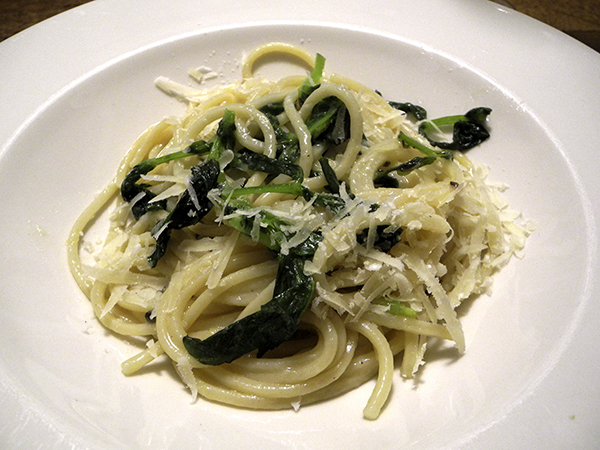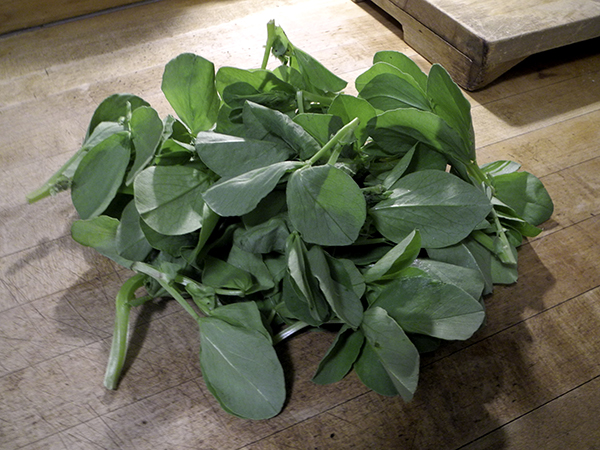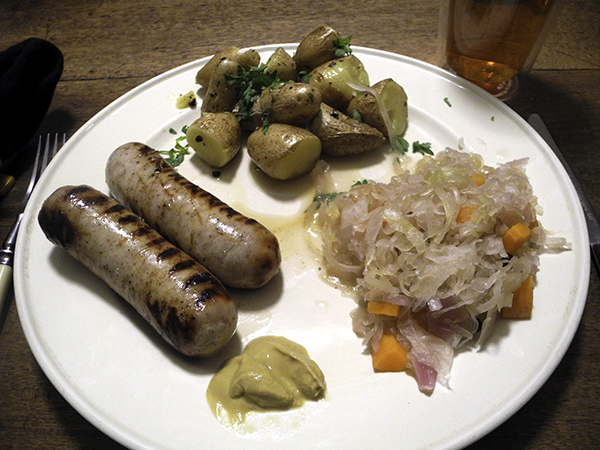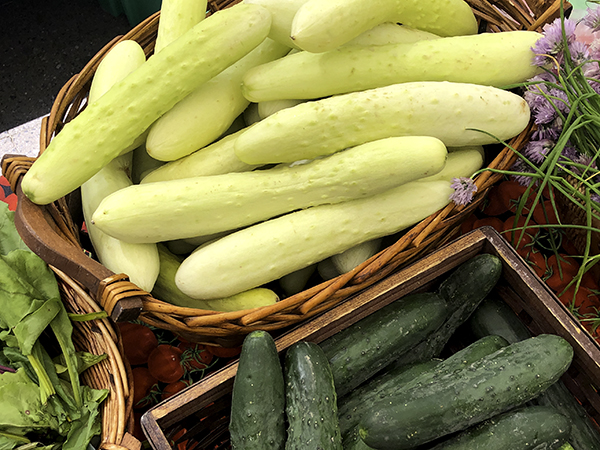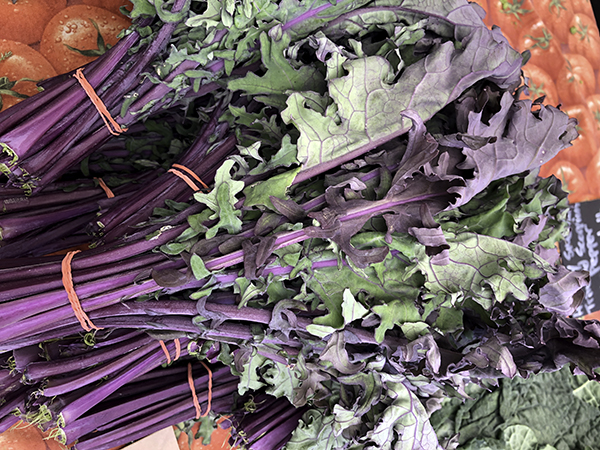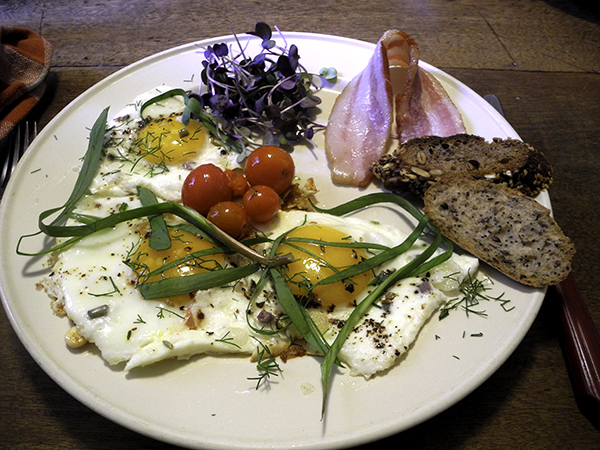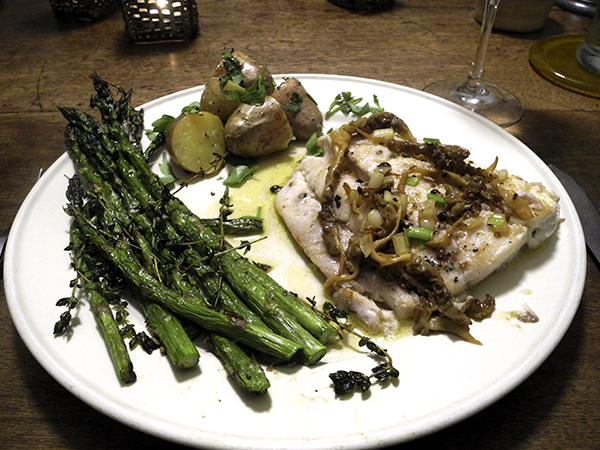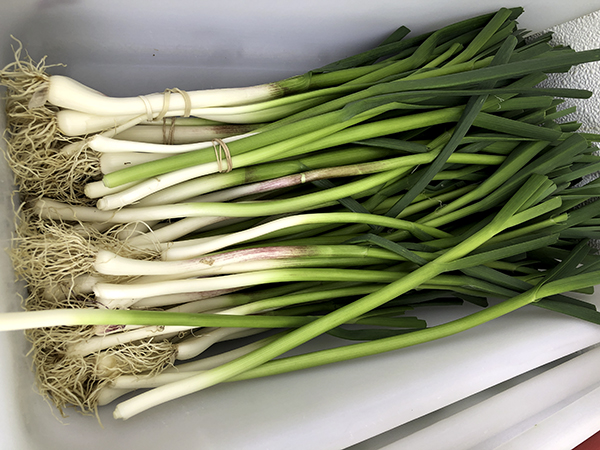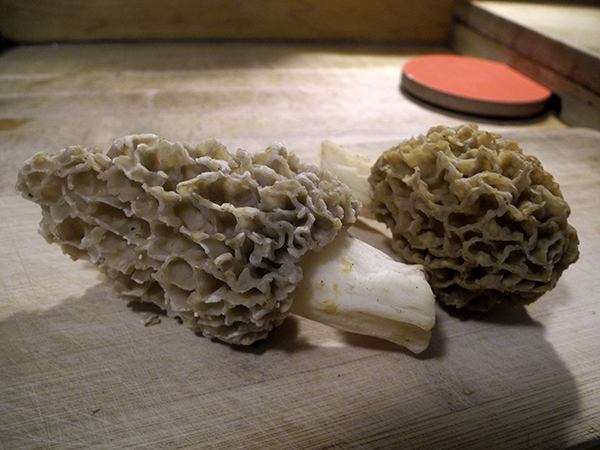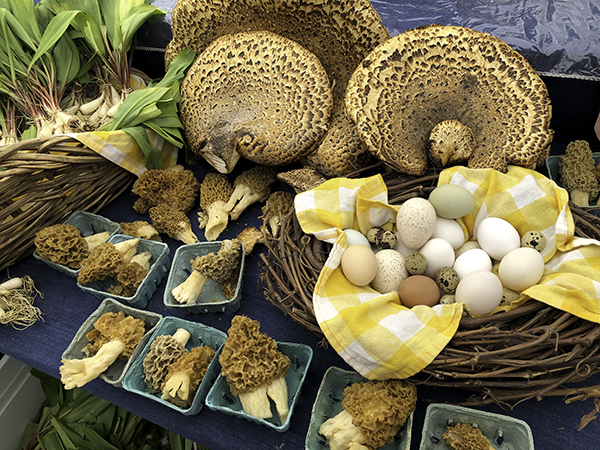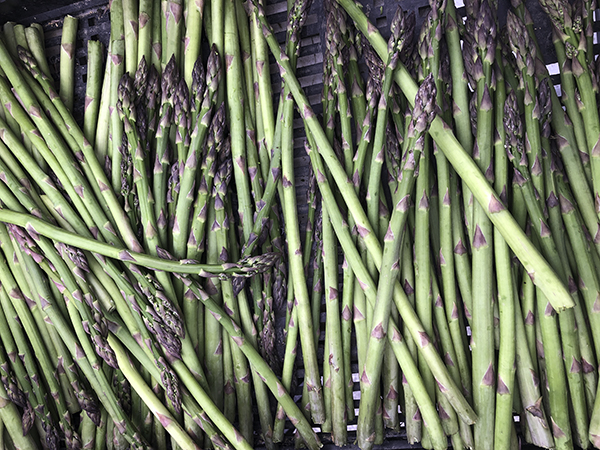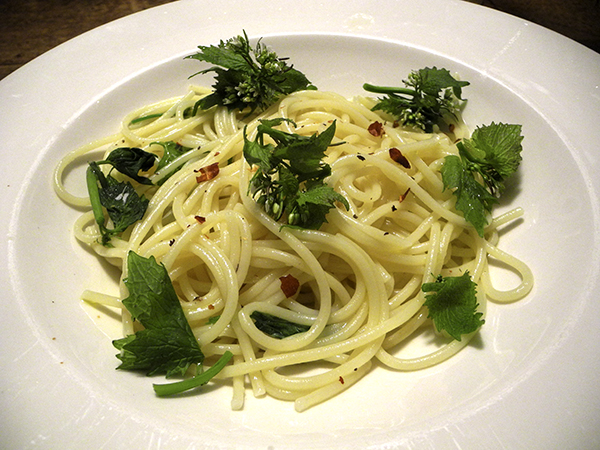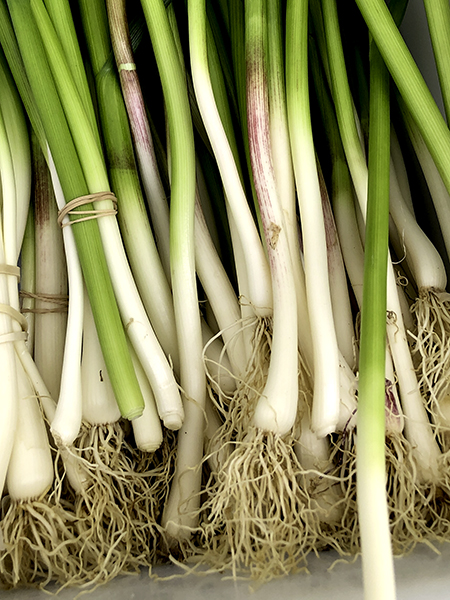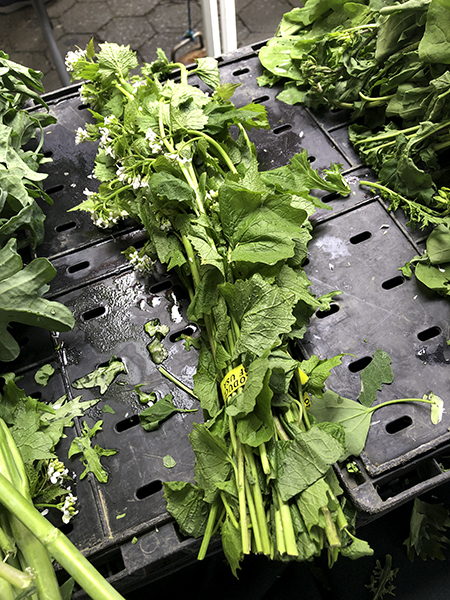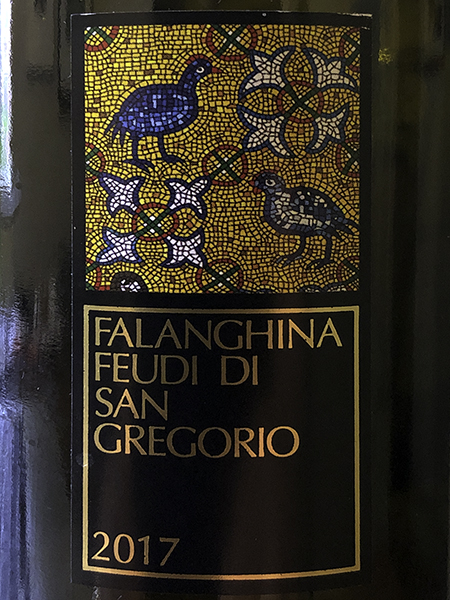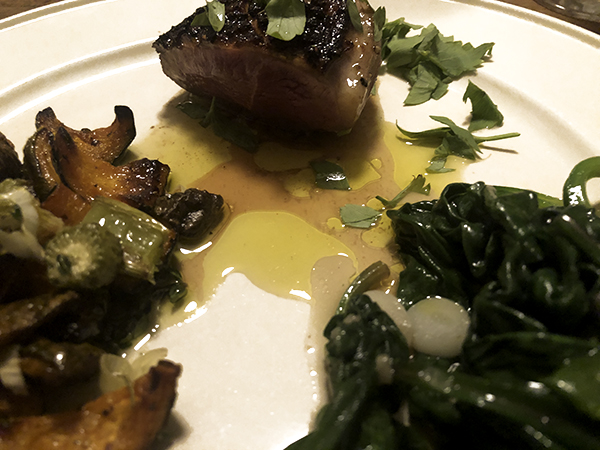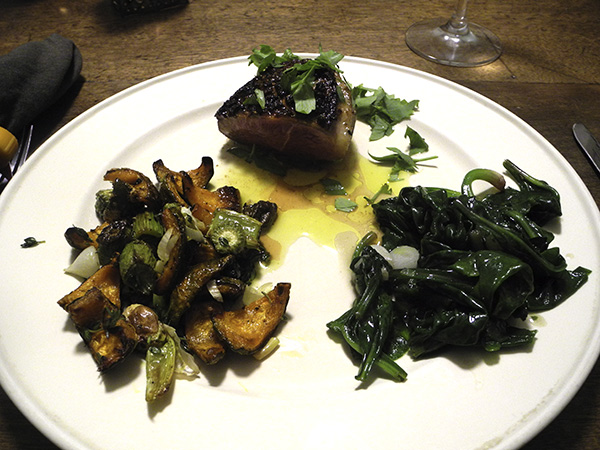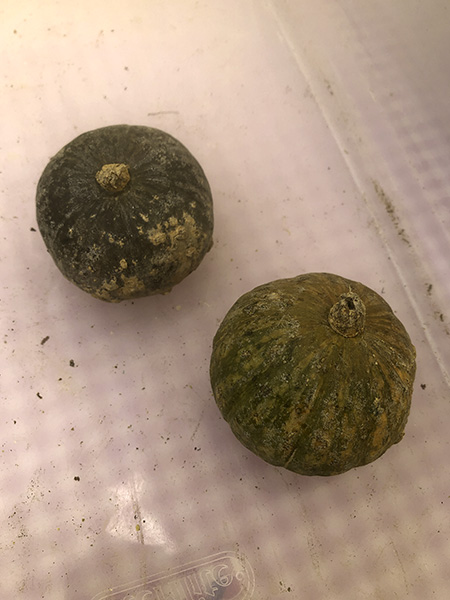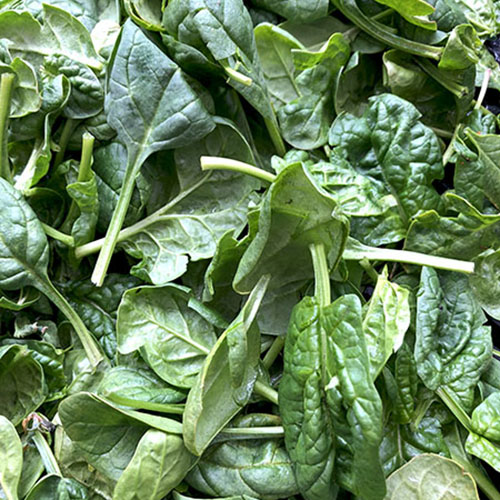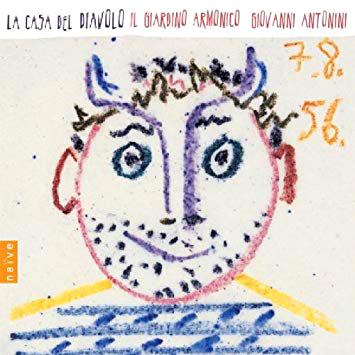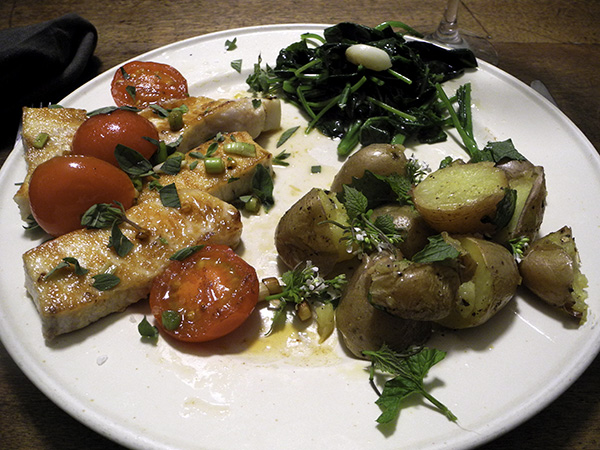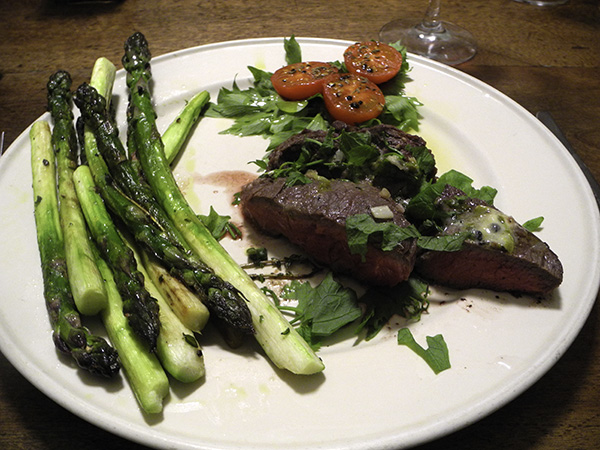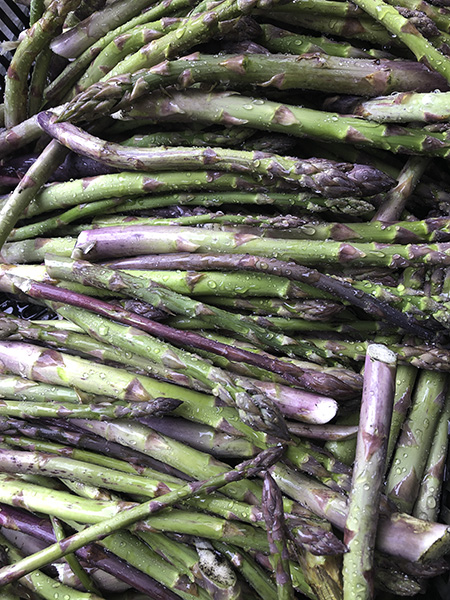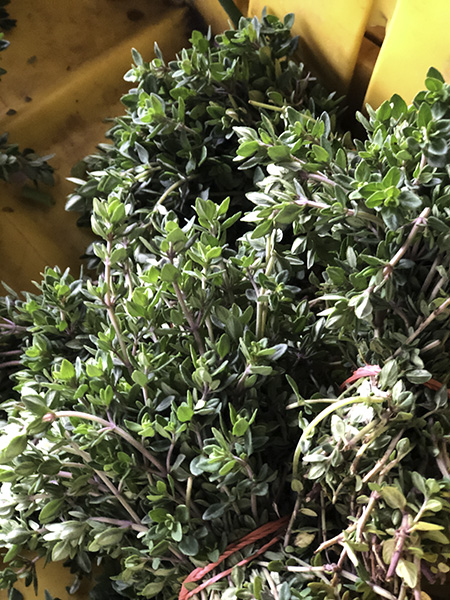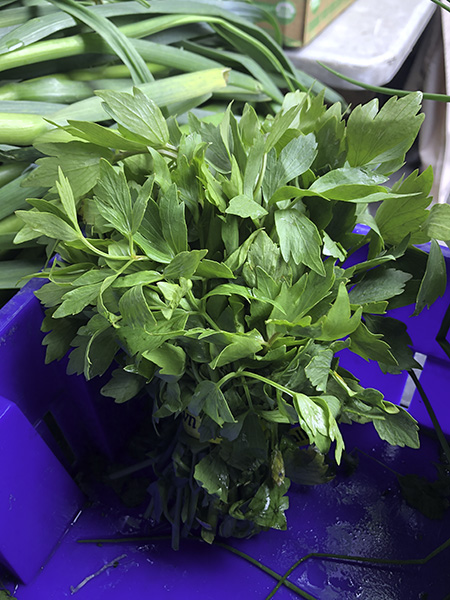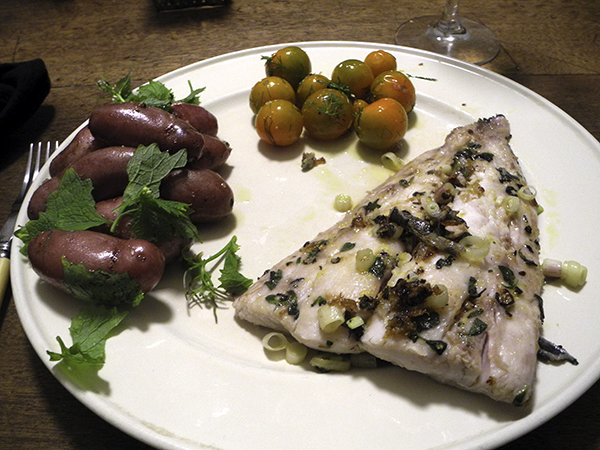
They were the last 2 dolphin fillets at the fisherman’s stand yesterday, and just the right size for the two of us. I would go home with them of course, not just because they’re so scarce, on that day, sure, but in the local market generally, but because we love this fish.
Some people might say all fish tastes pretty much the same, that the only real difference is in its preparation. This could just as well be said of red meat, but I’d argue that both opinions depend on a very narrow idea of what constitutes seafood or meat, when compared to the range of what is available in this area alone.
The taste and the texture of Dolphin are both pretty much unique. I can’t describe its sweet mild flavor in words, but it’s medium color, richness, and oiliness puts it somewhere between the extremes of dark, rich oily fish and dry, lean white fish; Barry and I enjoy virtually every kind of seafood, and because of the Union Square Greenmarket, we have access to the huge variety available in these waters alone.
One of the advantages of understanding the types of seafood is the ability to substitute species when deciding how to prepare a meal. One of the advantages of cooking at home frequently is the ability to substitute ingredients when you learn at the last minute that your fresh herb or seasoning vegetable has withered, or that you’ve either misplaced or haven’t replaced that spice you were going to use.
I’ve prepared several different kinds of fish in the same way I did these fillets last night, and I’ve tried several different preparations in the past for dolphin themselves. I chose this one for its simplicity, and for the fact that it wouldn’t heat up the kitchen with the oven on a humid evening. Then I realized that I didn’t have the herb I was hoping to use, but I could quickly substitute another (in fact I think the oregano worked better than the savory that I thought I had bought on Wednesday).
- two 9-ounce dolphin fillets, with skin, from American Seafood Company, dry-marinated for 45 minutes or so with more than half a tablespoon of zest from an organic lemon from Whole Foods Market, half a tablespoon of chopped fresh oregano from Phillips Farms, sea salt, and freshly-ground black pepper, seared in a little olive oil inside a heavy oval vintage copper fish pan for about 3 minutes, skin side up, then turned over and the skin side seared for another 3 minutes, the heat lowered and the pan loosely covered with aluminum foil for a minute or two, after which it was removed, and some thin-ish slices of spring ‘Magi garlic’ from Windfall Farms and a bit of crushed dried habanada pepper were introduced and very briefly heated with the fish, which was then removed from the pan, along with the allium and the habanada, and arranged on the plates, the now richly-savory pan juices poured over the top of the fish
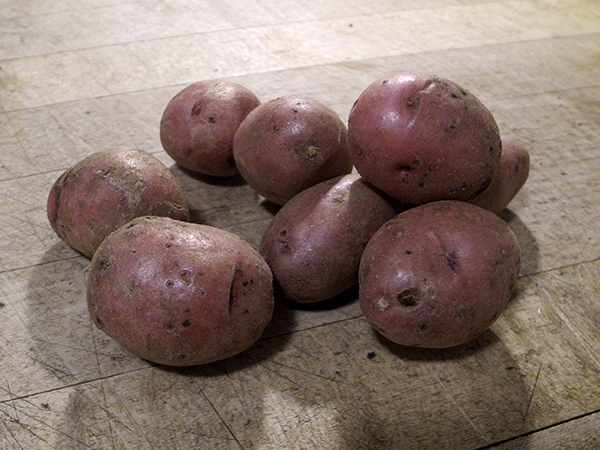
- thirteen ounces or so of some very small, very sweet ‘red thumb’ potatoes from Tamarack Hollow Farm, scrubbed, boiled whole and unpeeled in heavily-salted water until barely cooked through, drained, halved, dried in the still-warm large vintage Corning Pyrex Flameware blue-glass pot in which they had cooked, a little olive oil added, seasoned with salt and black pepper, mixed with some garlic mustard leaves from Norwich Meadows Farm, arranged on the plates and sprinkled with more garlic mustard, including some flowers
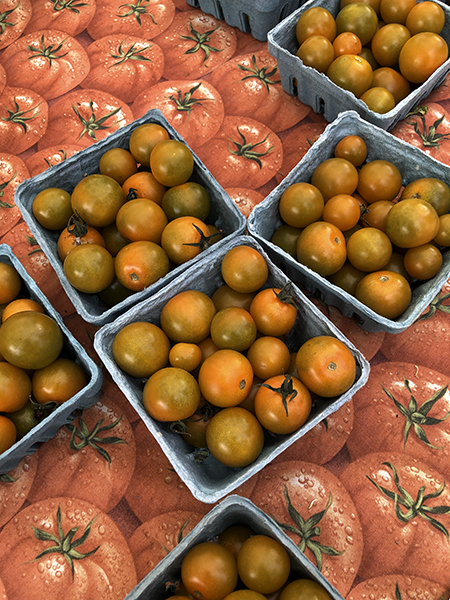
- one small basket of ripe Sun Gold tomatoes from Eckerton Hill Farm, rinsed, dried, each pricked at least once with a small kitchen prong, rolled around in a little olive oil inside a small skillet until they had begun to soften, seasoned with salt, black pepper, and a pinch of dried fenugreek from Bombay Emerald Chutney Company (purchased at the Saturday Chelsea Farmers Market), arranged on the plates and tossed with a small amount of chopped fennel fronds, still very fresh tasting, from a meal more than a week earlier
- the wine was a Portuguese (Beiras) white, Filipa Pato – FP Branco 2018, from 67Wine
- the music was the awesome Nonesuch After Mozart Digital MP3 Album, released as a part of the celebrations of the eponymous composer’s 250th birthday anniversary, with performances by Gidon Kremer and the Kremerata Baltica, with some of Mozart’s more playful works, plus some experimental pieces by other composers
